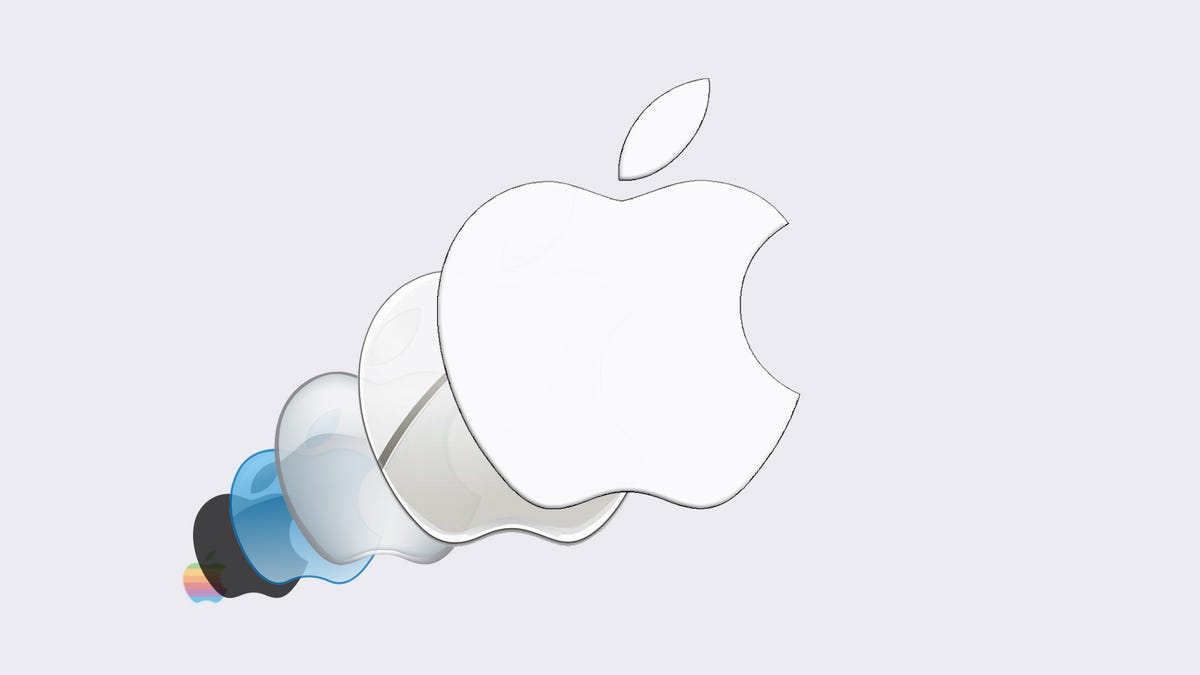Happy 40th birthday, Apple. Welcome to middle age
The company is over the hill now, but does that mean it has to be boring?

Today, Apple hits the big 4-0.
That's officially "over the hill," according to Urban Dictionary. (Sorry, everyone 40 and over!) For some, hitting that milestone causes mild panic and even a midlife crisis. Apple won't be blowing its billions on Porsches (well, except for the rumors it's working on a self-driving car), but the birthday seems fitting for a company in a more, shall we call it, mature stage of life.
Apple's no longer the brash, hippie company that introduced the Macintosh computer in 1984 as part of its mission to create "bicycles for the mind." And it isn't the struggling organization that was on the verge of bankruptcy when Steve Jobs returned to run it in 1997 and urged people to "Think Different."
It's not even the Apple of the early 2000s, when it introduced one blockbuster product after another -- the iPod, iTunes store, iPhone, iPad and even the Apple retail store.
The Apple of today is a grown-up company with hundreds of millions of customers actively using more than a billion of its products. It has a broader product lineup than at any other time in its history and it's the most valuable company on the planet, with a market cap of $604 billion.
Apple's on top of the world. But is it at the top of its game?
"When you're 40, you've been around the block a few times," said Carolina Milanesi, an analyst with Kantar Worldpanel. "It's not just about being exciting. It's about being conscious you have a large installed base of users, and you need to look after them."
Right now, it seems like all the exciting stuff is happening outside Apple's home address of 1 Infinity Loop. Microsoft -- the company Apple has portrayed as stodgy over the years -- wowed us again this week with its HoloLens augmented reality headset. On Monday, Facebook's Oculus took a big step forward with its Rift virtual reality system. Tesla and Google are leading the charge in car innovations, and Amazon is at the center of the smart home with its Alexa digital voice assistant.
Apple typically isn't the first company to move into new markets, and it takes advantage of established -- but not yet mature -- technology to create a more polished product.
"Steve [Jobs] had this saying, they invest in 'springtime technologies,'" said Regis McKenna, the famed PR and marketing executive who helped launch the Mac and advised Jobs till the Apple co-founder's death in 2011.
A longstanding question is whether Apple can do it again without Jobs.
Apple didn't have a comment but referred CNET to recent remarks from CEO Tim Cook about his excitement for what's to come.
Reinvention
BlackBerry, Nokia, Sony and even Microsoft worried so much about protecting their legacy products that they missed the move to the next big thing. Apple, though, hasn't been afraid of disrupting itself. The iPhone, released in 2007, decimated demand for the iPod. Apple pushed the iPad even though the tablet could have eaten into Mac sales.
"[Apple] doesn't hesitate to cannibalize themselves if there's a better product out there," said Ralph de la Vega, vice chairman of AT&T, who helped broker the deal that gave the wireless carrier exclusive rights to sell the iPhone upon its debut.
But Apple now generates more than two-thirds of its sales from the iPhone. At 40, you may be less willing to take risks.
The iPhone helped Apple report the biggest quarterly profit of any company. But things are slowing down. iPhone sales likely dropped for the first time ever in the March quarter (Apple releases financial results later this month), and they might even fall for the entire year.
"The markets in which Apple's operating have changed and have matured quite significantly," Jackdaw Research analyst Jan Dawson said. "It's about incremental improvements, new features that add value, then branching out into new categories."
Minor upgrades" That's where the iPhone SE comes in. The 4-inch device, which hit stores on Thursday, looks exactly like the 3-year-old iPhone 5S but sports updated components. And starting at $399, it's nearly 40 percent cheaper than Apple's flagship iPhone 6S.
The next 40
Minor updates may keep the iPhone engine humming, but to last another 40 years, Apple has to look beyond.
Cook has made some moves into new markets, like wearables with the Apple Watch and mobile payments with Apple Pay. Both are making strides with modest adoption.
And the company is sure to also branch into new areas like smart home technology and health care. Whether Apple makes a self-driving car or simply develops the infotainment and control system, autos represent another big opportunity. Then there's virtual reality and augmented reality, which Cook has said are "really cool." Apple could also make a play in artificial intelligence and robots -- and countless other areas we probably can't even imagine today.
But Steve Wozniak, Apple's co-founder and one of its most loyal fans, expressed some worries in a recent Reddit AMA. While he loves his Apple Watch, he noted that the only difference among the models the company offers is your choice of a band.
"This isn't the company that Apple was originally, or the company that really changed the world a lot," Wozniak wrote. "So it might be moving, but you've got to follow, you know. You've got to follow the paths of where the markets are."
Ultimately, Apple needs to "stay hungry," said Clement Mok, one of Apple's first creative directors and part of the team that launched the Mac. "As long as they stick to their core hippie values and challenge the status quo, I think they'll be around for a long time."
This story is part of CNET's coverage of the 40th anniversary of Apple's founding. For more stories in this package, click here.

